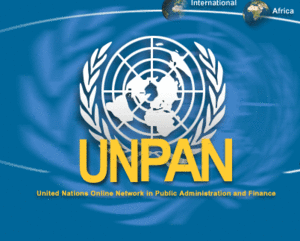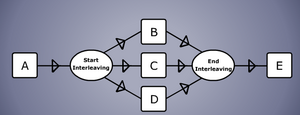XO Korea/central government/pm/ogpc
| Please copy/paste "{{Translationlist | xx | origlang=en | translated={{{translated}}}}}" (where xx is ISO 639 language code for your translation) to XO Korea/central government/pm/ogpc/translations | HowTo [ID# 38450] +/- |
환영합니다 | Portal | XO Korea | Deployment | Content | Hardware | Software | Mesh Network | Ethics | LOS | XO City | Accreditation | Consortium
The purpose of establishing governmental server architecture as a component of OEA is very simple, establishing common government modules which will;
- be used by various nations commonly,
- be made by citizens of various national backgrounds,
- complement, substitute or replace current governmental functions,
- show transparent governmental processes to citizens regardless of their nationalities, and,
- most importantly, provide highly developed governmental systems to developing nations, the same as OLPC
That is, like OLPC's providing children with XO laptops rather than teachers, XO Korea also hopes to provide developing nations with governmental servers and program modules (so called, e-Government), rather than highly educated governmental employees.
How wonderful it is if children and citizens in an African nation participate in writing a governmental module via collaborating with those children and citizens in Korea, and if they use the same modules as Korean governments for their own nations and governments.
For this purpose, XO Korea has prepared and is preparing very sophisticated architectures. Briefly;
There will be about 1,000 governmental servers in Korea at the end of year 2008, and their role is to replace human-oriented governmental services with those of system oriented.
The governmental servers also are dominated and used by human beings, but not governmental employees but citizens themselves. The Prosumer (producer + consumer, or producer = consumer) is the only guideline of all activities of XO Korea .
Contrary to the Tier 1 ~6 classification of governmental services (functions) written by the Korean government, XO Korea has reclassified them into tier 1~3 by eliminating unnecessary or duplicated governmental functions.
- About 10~15 Tier 1 servers will provide common modules to Tier 2 servers.
- About 60~70 Tier 2 servers will provide common modules to Tier 3 servers.
- About 900~1,000 Tier 3 servers will provide 1~10 governmental functions to Users.
So, the Tire 3 servers will interact with users of governmental services (functions), and XO Korea provides Open Enterprise Architecture about how to write codes using Python etc., how to avoid repetitive works, how to share common modules, and how to localize servers etc.
XO Korea hopes those just 1,000+ servers and their administrators (equally 1,000+) shall replace some of current governmental or public organizations by providing the same functions or services. Furthermore, those servers shall be localized into more than 200 nations including not only developing nations but highly developed nations also.
YAWL is a Workflow/BPM system. Based on a concise and powerful modelling language; YAWL handles complex data, transformations & Web Service integration. Built in Java, it uses XML Schema, XPath/Query, & XForms natively. It is compatible with SOAP & WSDL.
XO Korea uses YAWL to visually diagram workflow of any function or service, including those of governmental business sections.
Before you participate in writing codes for e-Governments or e-Business modules, it is strongly recommended to read three kinds of documents below.
- YAWL: what is YAWL and how to use it.
- XO Korea/oea: what is Open Enterprise Architecture and how to use it.
- XO Korea/workflow description of each target service or function: in-depth description of the module desired to be written.

